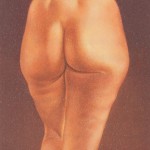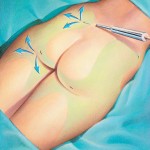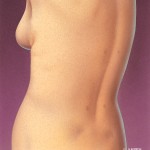INTRODUCTION
Liposuction can be used to remove excess fat in specific areas of the body. As can be seen in the media, it is a very popular procedure. One should, however be cognizant of the limitations of this technique and go beyond the media hype since it is not a magical weight reduction method.
AM I A CANDIDATE FOR THIS SURGERY?
Anyone in good health can undergo liposuction. The surgeon will assesses the skin tone, the age, the weight along with the expectations of the patient. A good candidate is one who is in good health and is not obese. The skin tone is very important since it will determine if the skin will ‘shrink down’ after removing the fat or if it will just hang flaccidly off the body. Finally, the expectations of the patient are important to evaluate. As mentioned, liposuction is not a cure-all for obesity and it cannot replace dieting and exercise.
One important factor to mention is the difference between men and women. Women tend to accumulate fat in the hips, thighs, buttocks and neck areas that are easily reached with the liposuction cannula. Men, however, tend to accumulate the fat deep inside the abdomen, around the intestines, giving the proverbial ‘beer belly’. Fat in this area is not reachable and cannot be removed. Barring this difference, both sexes are candidates for surgery.
PROCEDURE
The procedure can be done under general or local anaesthesia, depending on the amount to be removed. The area to be suctioned is infiltrated with a very dilute solution of local anaesthetic in order to diminish pain and bleeding. Small incisions are made and liposuction cannula is placed through them in order to remove the fat.
PREPARATION BEFORE SURGERY
Aspirin and all anti-inflammatory medication should not be taken for three weeks before surgery until two weeks after surgery. Anti-inflammatory medication and Aspirin causes thinning of the blood and may lead to excess bleeding during and after surgery. Tylenol (Acetaminophen), however, does not cause this problem and may be taken.
Alcohol in any form is not to be consumed for two weeks before surgery until two weeks after surgery. Alcohol has properties that dilate blood vessels and thin the blood and can contribute to excessive bleeding during and after surgery. Even a small amount can cause problems.
Should you have regular medications to take, ask your surgeon if you should take them before surgery or not. Certain medications can cause problems and only your surgeon can determine this.
AFTER SURGERY
A compressive dressing will be placed and removed about a week after surgery. Some fluid leakage is to be expected from the incision points during this time. When the dressing is removed, you will be expected to wear a compressive garment for about 5 additional weeks.
The degree of swelling depends on the location and amount of fat removed. Liposuction of the hips and thighs will cause a significant amount of swelling lower down around the calves and ankles. In order to diminish swelling, avoid any significant amount of physical activity. Hang out around the house and watch television with the legs elevated for the first week after surgery.
Bruising is generally minimal and a return to normal physical activities can be expected by about 6 weeks after surgery. Slight swelling can recur over the ensuing months depending on the type of activities performed, which is why the final result becomes stable by about 6 months.
POSSIBLE COMPLICATIONS
Possible ComplicationsCONCLUSION
Liposuction is not a magical cure-all and tends to be more suited for the younger patient with good skin tone. By performing liposuction, the surgeon can remove fatty deposits at specific locations in the body. Ensure that you are seeing a qualified plastic surgeon since he would be able to tell you if you are a good candidate for liposuction or not. If you are not, your surgeon may suggest alternative methods. Only a qualified plastic surgeon can offer these alternatives. you may contact the Royal College of Physicians and Surgeons of Canada (1-800-668-3740) to verify if your surgeon is indeed a plastic surgeon.



